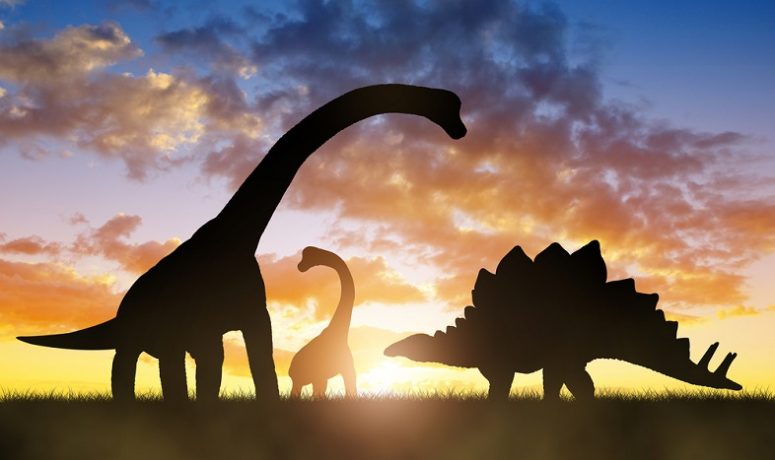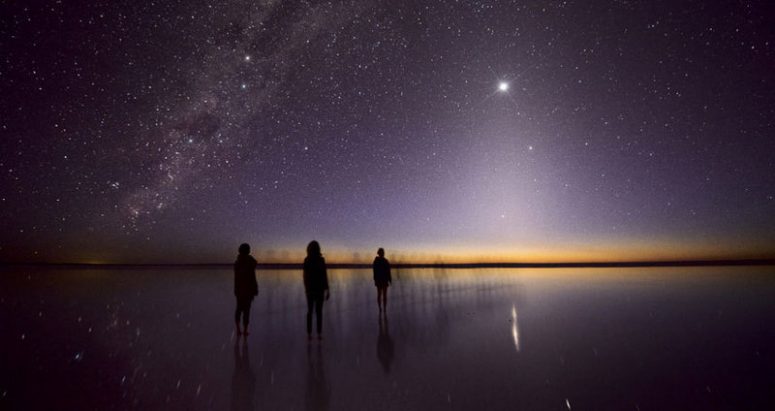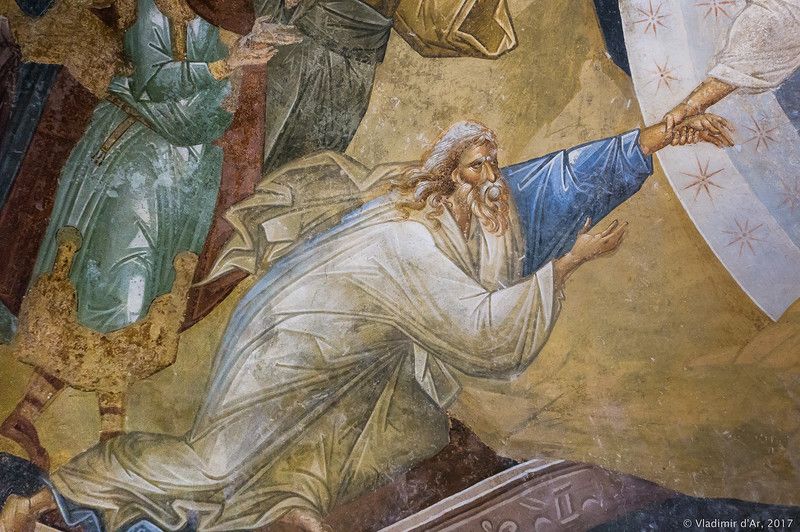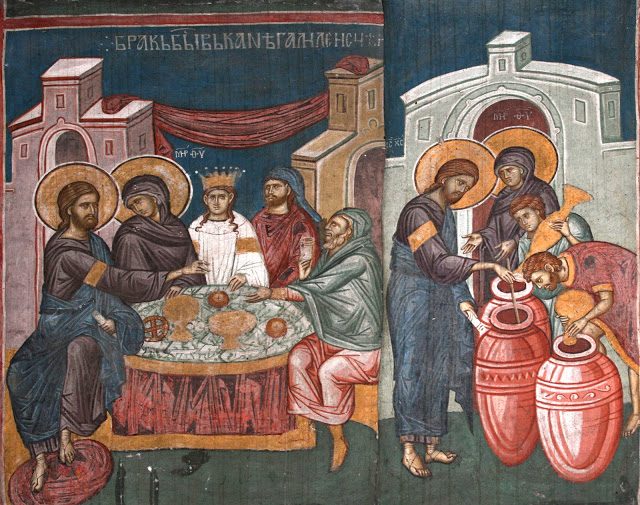
A Foreword for Parents
More often than not, Christian children who go to elementary or junior high school have a hard time reconciling what they’ve learned in natural sciences museums or from books and movies with their Christian beliefs. It is great if they ask their parents about it: this means that they trust their parents. Nevertheless, we parents may find it difficult to answer the questions that they ask.
First of all, as a rule, these questions are related to non-dogmatic issues, on which the Church doesn’t have unanimous opinion. Therefore, parents need to be cautious so as not to pretend that their opinion is shared by the whole Church. Secondly, even a simple-worded question can require dealing with philosophical notions that children are not ready to comprehend yet. Hence, you will have to use the words and notions that your children understand. They may be unable to grasp an answer that is too complex and cumbersome; likewise, they may feel dissatisfied or suspect that you hide something or that you essentially don’t have anything to say if you give an answer that is too simplistic or primitive.
Anyway, we suggest several answers to the most typical children’s questions: not as a manual but as a reference for parents. Our answers may be helpful but in any case you will have to choose words that your kid will understand on your own.
Christians say that the world was created by God 7500 years ago. How do they know it? Is it written in the Bible?
The Bible doesn’t mention the precise age of the world but it does contain information on the life of the first humans: how long they lived, how many children they had, how long their children lived, and whom and when they gave birth to… from Adam and Eve all the way to the Nativity of Christ. Christian theologians back in the 2nd and 3rd centuries attempted to calculate the age of the world based on this information: they added up all numbers and came to the conclusion that the Nativity of Christ happened 5508 years after the creation of the world. It must be noted, though, that various church scholars got different results.
The problem is what we should make of those calculations, or rather, the information in the text of the Bible on the basis of which they were made. Educated Christians have different opinions on this. Some think that the calculations are correct and therefore the world is indeed 7500 years old. Others believe that the Bible mentions only the chief stages of human history, not all of them; and therefore, we have too little data to calculate its total span, leaving aside the fact that the Bible doesn’t tell us whether time periods in the Garden of Eden before the Fall were equal to time periods after the Fall. Supposedly, one day for Adam and Eve could be a million or even a billion years for us.
Most importantly, the age of the world is an unimportant issue for the Christian doctrine. One Christian may think that the world is seven and a half thousand years old, while the other may believe that it is fourteen and a half billion years old. This difference of opinion is completely normal. The most important thing of all is that God incarnated and became a human being by the name of Jesus Christ while remaining divine. Why did He do it? He did it so that, after his death and resurrection, all people would have the opportunity to get saved if they want to. That’s a belief all Christians have in common.

If there are other worlds except ours, who created them? Our God or some other gods?
Currently, science cannot say anything definitive about the existence of other worlds, i.e., other universes. Scholars put forward various propositions but none of those has been proven yet. Given that science cannot say anything for sure, neither can religion, primarily because it isn’t a field of its concern. Religion doesn’t say anything about mathematics theorems or details of worms’ breath. It is science that deals with issues like those.
Religion is based on Divine Revelation, i.e., the truths that God has revealed to humans, both through his prophets and his incarnation, when He became human while remaining fully Divine. That’s what we have to bear in mind: God informed people only of what they really have to know in order to walk the path of salvation. He didn’t tell us anything else, including facts about the world that He had created. It isn’t because this information is secret: it is because if people are really curious, they will eventually figure it out on their own, including the issue of the existence of other worlds.
Even if scientists discover other worlds one day, we will still claim that they were created by God. Not other gods but our God, who is the only one and there are no other gods but him. That’s the foundation of our faith. In this case, we may consider the world to be one but divided into various parts, like apartments in a multi-storey building.
Why did God create so many stars and galaxies if we are alone in the Universe? What are they for?
Indeed, God created a huge world with countless galaxies, stars, planets, nebulae, and black holes… We inhabit a tiny planet (compared to Jupiter) rotating around a small (compared to many other stars) star called the Sun, and we are likely to be asking what all the rest is for. Those countless stars and other space objects — what are they for if we’re alone in the Universe?
We could respond that God created this huge, brilliant, and diverse world for us humans because He loves us.
There was an ancient saint by the name of Maximus the Confessor (7th century) who said that God gave this created world for us to study and thus to improve our knowledge of God, like a toddler who develops by playing with toys, assembling and disassembling them. This world with myriads of stars and planets is like a development toy for us humans.

Moreover, it’s outright beautiful! If you ever saw a starlit sky over your head, you will never want to be deprived of this beauty. You wouldn’t want the sky to be wrapped in grey clouds. God loves us, and that’s why He created this beauty for us. Even though it isn’t within our reach yet; even though we have only recently begun to explore the Solar system — there’s a long and glorious road in front of us. We don’t know God’s plans. We don’t know how long the human race is going to exist but it’s likely that one day people will fly to other stars and go beyond the borders of our galaxy.
You know what it’s like? Imagine that we live in an apartment in a large city. We have all amenities you could think of: electricity, running hot and cold water, gas, internet connectivity. And yet, we still want to go out sometimes. We want to roam city streets, go to sports grounds, parks, theaters, museums. We want to leave the city and travel to the countryside, to walk in the woods or swim in a river or in a sea, or climb mountains, or even go abroad. We’ve got an enormous world called Planet Earth, where there are so many exciting things to do. Of course, we can stay at home but we’d like to do all those other pastimes, too. If we cannot afford them, it doesn’t mean that they are pointless. If we never go to Brazil to see jaguars and pangolins, does it mean that we can do without jaguars? Well, life would be boring without jaguars, wouldn’t it?
The same is true for the billions of stars, which we cannot reach yet. They are beautiful. They make our life more exciting, and we would be less happy without them. They exist, all those stars and galaxies, and they are God’s gift for us — a gift to grow into.
Translated by The Catalog of Good Deeds



